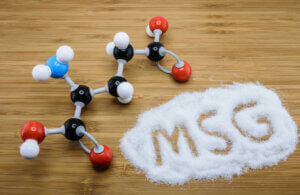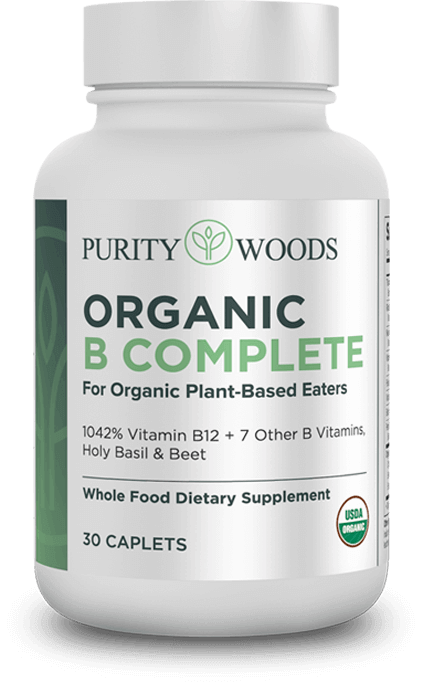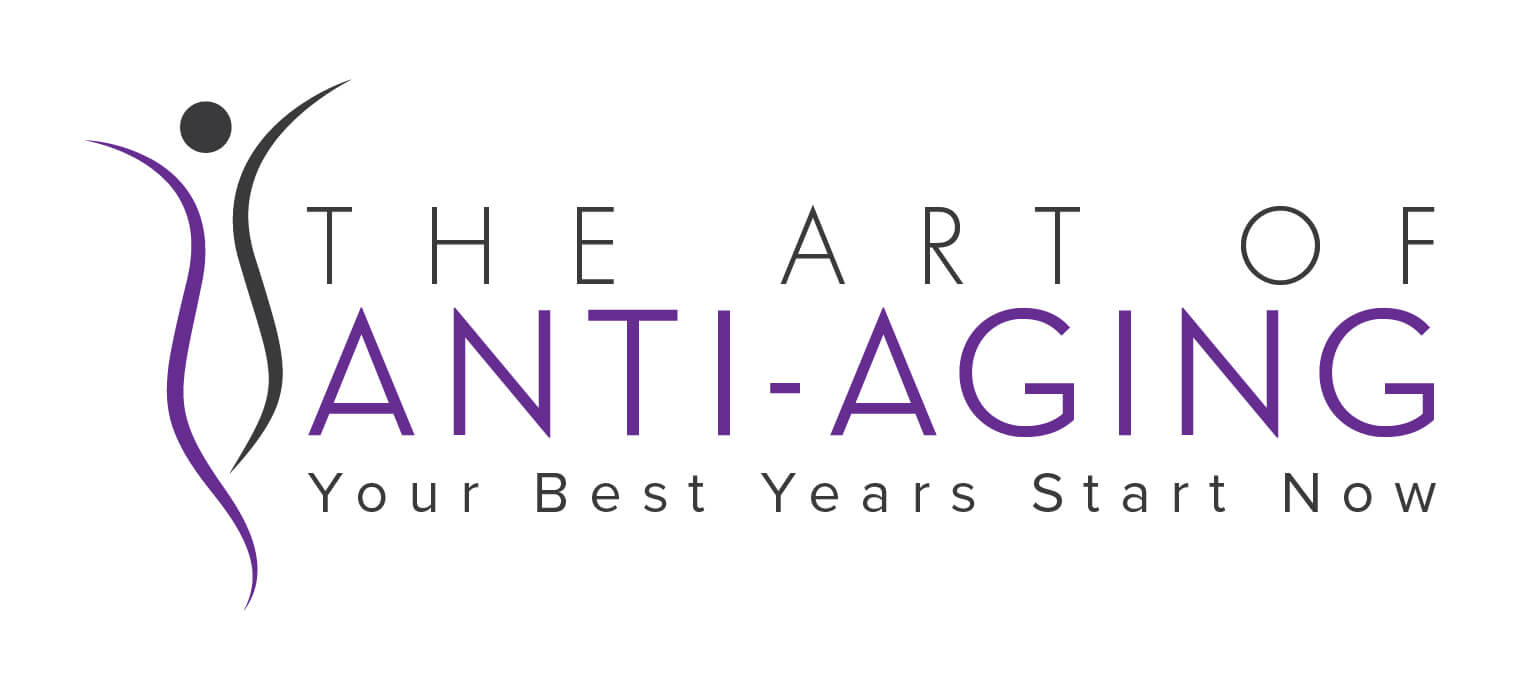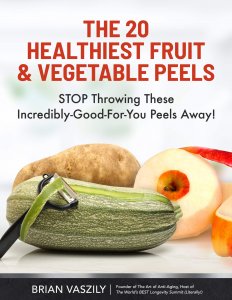Migraines and other types of headaches are frustrating, to say the least. Symptoms can range from a mild ache to severe, throbbing pain and may also include nausea, fatigue, and light or sound sensitivity.
There is no single cause for headaches or migraines, but they are often brought on by some kind of trigger.
Triggers are very individualized, meaning they vary greatly from person to person. Identifying what your body specifically is sensitive to can greatly help reduce headache frequency.
Certain foods— and food additives— unfortunately fall into the category of common headache triggers.
Again, no one food will trigger a headache/migraine in everyone. But having a “most likely culprit” list will help you narrow your focus to see if some simple diet tweaks can cut back on head pain.
Dealing with Migraines and Headaches— Common Triggers
Before we get into specific foods that trigger a migraine, it’s important to understand what research as a whole has to say about this subject.
Overall, migraines are by far the most researched type of headache when it comes to food triggers. That’s not to say other kinds of headaches (cluster, tension, etc.) can’t be triggered by food. They simply haven’t received as much attention in studies.
At the end of the day, the most critical step is determining what your body reacts to and reducing or eliminating it.
In addition to the following foods and additives, here is a list of other documented migraine/headache triggers to keep in mind:
- Stress
- Hormonal changes (i.e., menstruation, pregnancy, etc.)
- Weather / Environmental changes
- Fasting or skipping meals
- Dehydration
- Sleep changes, particularly too little or too much sleep
- Bright lights
- Loud noises
- Strong smells
- Smoking / Tobacco
- Certain medications
As a final note, it’s important to stress that some of the additives (and even some foods) you’re going to read about next can be found in supplements as well as food. It’s worth the extra effort to read the labels for everything you consume until you identify your trigger(s).
Foods & Additives That Trigger a Migraine (or Headache)
Alcohol

Alcoholic beverages are very common headache triggers.
According to one study, nearly 36% of participants listed alcohol as a major migraine trigger. Red wine was mentioned most frequently as the biggest culprit, but white wine— and any other type of alcohol— can still have the same effect.
Researchers still aren’t sure why alcohol can bring on a headache, but there are a few theories.
One possibility is the high tannin content of wine. Tannins are natural plant compounds present in grapes and other fruits. However, larger amounts of them (as found in wine) may interfere with serotonin release, promoting headaches in sensitive individuals.
Alcohol is also dehydrating, can dilate brain blood vessels, and frequently contains preservatives, like sulfites. All three of these are possible contributors to a migraine.
Caffeine
Caffeine is a bit complicated when it comes to foods that cause headaches.
On one hand, caffeine has been identified as a possible migraine trigger for many years. However, it also has documented effects as a migraine/headache reliever.
This, yet again, highlights how individualized trigger foods/substances are.
For some, too much caffeine can bring on a headache or migraine. Caffeine withdrawal is similarly known to trigger headaches in certain people.
But in many other cases, low to moderate levels of caffeine ease a headache and may even help stop an oncoming migraine.
Overall, experts recommend that migraine sufferers consume 200 mg or less of caffeine per day and try to take it at the same time each day. If caffeine is definitely determined to be a trigger, you can gradually decrease consumption until you eliminate it.
Aged Cheeses

Aged cheeses are also at the top of the list of foods that trigger a migraine. This isn’t necessarily due to the nature of— or ingredients in— cheese but rather because of a specific compound that forms as cheese is aged.
The compound in question is known as tyramine, and it forms due to the breakdown of proteins in cheese. In general, the longer a cheese ages, the more tyramine it will contain.
Tyramine is believed to contribute to headaches by stimulating cerebral vasoconstriction, meaning a narrowing of certain blood vessels in the brain.
Unfortunately, many of the most popular cheeses are aged and contain higher amounts of tyramine. This includes cheddar, feta, Parmesan, blue cheese, Gouda, Swiss, and more.
Cured or Processed Meats
Many processed meats contain food additives known as nitrates. Nitrates act as preservatives in meat and help them keep their color and flavor.
Once inside you body, nitrates can increase the amount of nitric oxide, which may cause blood vessels in the brain to dilate. For this reason, nitric oxide has been implicated in migraine attacks, although it hasn’t been conclusively proven to cause headaches.
Nevertheless, processed/cured meats are a trigger for certain people (and may increase your cancer risk, too).
Meats that typically have the highest amount of nitrates include ham, bacon, deli meat, and hot dogs. (Note: Veggies like spinach, bok choy, lettuce, and carrots are a source of natural nitrates, which are not currently associated with any health risks.)
Monosodium Glutamate (MSG)

MSG is a controversial food additive. It’s most frequently used as a flavor enhancer in everything from snack foods to seasonings, sauces, and condiments.
According to research, MSG is a potential trigger for headaches, although many studies on the subject have been inconclusive. However, the American Migraine Foundation lists MSG as a trigger in at least 10-15% of migraine sufferers. They note that it especially triggers severe migraines and diarrhea in those who are sensitive.
The best way to avoid MSG is to look for it on food labels. Some foods (seaweeds, tomatoes, cheeses) contain the natural form of MSG, but it’s unknown whether it has the same effects as the lab-made version.
Yellow Dye #5
Foods that contain artificial dyes are yet another possible trigger for a migraine or headache. Yellow dye #5— also known as tartrazine dye— is often cited as the most frequent culprit, but others like yellow dye #6 and red dye #40 are potential triggers as well.
Researchers still don’t know why food dyes contribute to headaches. However, since they don’t add anything nutritionally to food (and have other health risks), the best approach is to avoid artificial colorings altogether.
The only way to do this is to constantly check food labels for color words (Yellow 5, Red 40, etc.). Also, be aware that some dyes are used to color drugs and supplements, so don’t forget to check them, too.
Artificial Sweeteners
There are many reasons to avoid artificial sweeteners, and their headache-triggering potential is yet another.
It’s still unknown how many sweeteners are responsible for bringing on a headache, but older studies have linked one known as aspartame to migraines. Aspartame is commonly found in sugar-free foods, gums, and sodas and also appears in certain medications. It’s also present in brand-name sweeteners like Equal and Nutrasweet.
Again, some people appear to be sensitive to aspartame— and possibly other sweeteners— while others are not.
Cold or Frozen Foods

If you’ve ever gotten “brain freeze” from eating a frozen treat, you have some idea of how these types of foods can affect your head. For certain people, cold food can trigger a full-on headache rather than a passing unpleasant sensation.
The good news is that chilled foods and drinks— like smoothies, ice cream, or popsicles— don’t need to be avoided altogether.
A headache is most likely to come on if you eat frozen foods too quickly, especially when you are overheated or right after exercising. Enjoy them more slowly to avoid rapid temperature changes, and they shouldn’t be a problem.
Salty Foods
Eating lots of salty foods has the potential to trigger a migraine or headache, but the effect might not be immediate.
Essentially, research has found an association between elevated blood pressure and chronic headaches. A diet high in salt/sodium can contribute to high blood pressure, which may be why lowering salt intake has been linked to a reduced risk of migraines and other types of headaches.
Processed foods are typically the biggest source of salt/sodium in the diet. Cutting back on them is a good way to boost your health overall and may lower headache frequency, too.
Chocolate

Chocolate is often listed as a potential migraine trigger, but studies on it have been very conflicting.
To give you a brief overview, a recent research review documents that many migraine sufferers believe chocolate brings on a headache for them. However, when chocolate has been compared to a similar-tasting “placebo” in several studies, it hasn’t increased the risk for a headache at all.
Some experts believe that rather than being a trigger, chocolate may instead be a craving that hits when a migraine is oncoming— a “symptom” rather than a cause.
Still, it may be worth removing chocolate from your diet temporarily to see if it lessens your headaches. (If not, no reason to avoid it, since dark chocolate and cocoa powder have numerous health benefits.)
Pickled or Fermented Foods
There aren’t any studies specifically documenting fermented or pickled foods as headache triggers. However, they do contain high amounts of tyramine— the same compound found in aged cheeses— that may contribute to headaches in certain individuals.
If you suspect that you are sensitive to tyramine, it may be worth investigating whether fermented foods are a trigger for you. This would mean eliminating foods like sauerkraut, kimchi, yogurt, kombucha, and pickles from your diet for a certain period of time to see if you notice a difference.
Citrus
At least one study has found that citrus fruits may be triggers for migraine with aura. Interestingly, they were not found to trigger migraine without aura— and other studies have not found them to be triggers at all!
This highlights just how difficult it can be to study something as complex and individualized as migraine/headache triggers in a controlled setting.
To take away some of the confusion for you, citrus is considered “on the radar” as a headache cause. It’s much more rarely reported than other foods that trigger a migraine but still seems to affect a small number of people.
How to Identify Foods & Additives that Trigger a Migraine

You now know the most common culprits that can trigger a migraine or headache. However, it will still take some detective work on your part to determine which— if any— of the above affects you specifically.
To start with, one of the biggest questions is whether food is really triggering your headaches. You won’t know for sure without experimenting, but the following information may help you determine if food is a factor:
- Foods typically trigger a headache within 4-12 hours (sometimes less). Occasionally, it may take up to 24 hours for a reaction but not longer than this.
- Rarely will a trigger, including food, bring on a headache 100% of the time. If you think a specific food gives you a headache more than 50% of the time, consider it a possible trigger.
- Triggers often influence each other, making them more difficult to identify. For example, when you are stressed, you may find that a certain food is connected to your headaches. That same food may not be as much of a factor when you are less stressed, but it’s still a potential trigger.
Key Steps to Take
If you think food is triggering your headaches, the next step is to pin down the culprit(s).
This can seem like a daunting task, so here are a few key tips to help you get you started:
- Work on one food or food group at a time to determine if it’s a trigger. Don’t try to remove all possible triggers from your diet at once. This can make it difficult to tell which diet change is responsible for any improvements.
- Limit or eliminate the food of concern for 4 weeks. If you notice improvements in headache frequency or severity, add the food back in to see if it has a negative effect. If not, move on to the next food on your list.
- Keep a food diary to track your efforts. To avoid confusion, write down any diet or headache changes in a dedicated journal. Record the dates you eliminate certain foods as well as the dates of any headaches/migraines and their severity.
- Be cautious with drastic changes. In many cases, eliminating a single food from your diet won’t cause any harm. However, caffeine withdrawal, for example, can actually make headaches worse, so you may want to consider a gradual step down instead of going “cold turkey”.
- Check your supplements, too. Remember that many additives— including dyes and sweeteners— can be found in supplements as well as foods. Be sure to read the labels for everything you consume.
NEXT UP: USDA Certified Organic Vitamin B Supplement (NO dyes or other additives)
Supplements may be the most contaminated thing people are feeding their bodies in general today.
Many if not most supplements out there contain a wide range of synthetic and potentially toxic ingredients — from dyes and sweeteners to pesticides, herbicides, hydrogenated oils, excess heavy metals and beyond.
These ingredients may cause headaches and a very wide range of other health issues as well.
And it’s a highly unregulated industry, so it’s definitely a case of you being aware of what to look for and paying close attention to labels.
When it comes to supplements, the highest standard to look for in this regard is that it’s USDA Certified Organic.
This strict verification ensures — independent of any claims the company itself makes — that the supplement is non-GMO, free of synthetic ingredients, and free of ANYTHING you don’t want in your body.
USDA Certified Organic even ensures that the natural ingredients included in the formula were grown organically, without pesticides, herbicides, and other chemicals.
Now, up to 40% of the population may be low in vitamin B12 — and this especially impacts those who are older and those who eat more plant-based.
This is a serious issue, because vitamin B12 is key for energy, focus and memory, mood, a healthy heart, healthy bones, and more.
Many people are low in other B vitamins, as well, and it’s wise to take a complete vitamin B complex that provides you all eight essential Bs — versus a supplement that only provides you vitamin B12 in isolation — as vitamins work synergistically together to support your energy, brain, metabolism, and more.
That’s why one of the most important supplements you should consider taking is a vitamin B complex providing all eight essential Bs including B12!
If you are “in the market” for a vitamin B complex supplement…
(If interested, you’ll see that today you’re getting up to 31% OFF and FREE U.S. shipping on it.)
Whatever you choose, it’s important to note that eliminating the unhealthy potential sources of migraines and other headaches noted in the article above — such as unclean supplements, cured or processed meats, or anything containing MSG or artificial sweeteners — may not only help the headaches but certainly will boost your health in other ways!



Thanks for the article. I already know some of these foods, etc, (alcohol, MSG, stress, skipping meals) trigger my migraines, but you have given me a few other items to consider
Very interesting article! For me, it was pork and shrimp (yep – things the Old Testament said to avoid). Stress also can trigger a migraine, though not often when I watch my food intake. And Aspartame is an instant trigger. I’m also careful with salt and caffeine – due to restless leg syndrome though more than migraine.
We found that onions–even a light sprinkle of onion salt– were a major trigger for my husband’s migraines!
I also noticed that he was a great weather forecaster–he could tell 3 days before a low came in!
Love all of your articles!! Thank you!!😊
I had severe headaches for decades, from pinched nerves from a childhood neck injury. When I was a kid, the school nurse would have me lie down; but that just made it worse. I always had to stay up until it was gone, even if that meant all night. At age 49, I figured out, by accident, that 100mg of caffeine every morning put and end to the severe headaches. I still got an occasional mild but nagging headache after that, and it took many years to figure out that chocolate was the cause. It took so long because the effect was never sooner than the next day, ie, quite delayed, and it takes so little that it was hard to believe (and I didn’t want to believe it).
Very helpful and interesting article, especially key steps to take when checking what is causing ones migraines.
Thank you Very hekpful
Wheat/gluten was my trigger. When I went gf my migraines stopped, after 30 years. I was mad that I suffered needlessly for so long. I’d tried everything else and I mean everything. I’m surprised that it’s not on the list. Note: “Out of people with migraine, around 2.4% have celiac disease” (Front Hum Neurosci. 2021; 15: 640574)
thank you for this very interesting and informative article. I am in my sixties now and have suffered with migraines scince puberty, I will be following your advice.
Very informative thanks I journal all my daily activities and meals , I will try to figure out what is causing my headache.
I would get migraines monthly, besides red wine and especially from MSG
For me taking magnesium and CoQ10 totally eliminated them, of course I also avoided my two triggers
Excellent informative article backed by science.
I have suffered from migraine over 50 years. Cheese is the main food related trigger for my attacks. I also experience having meals from Chinese restaurants (probably due to preservatives like nitrates) precipitate migraine.
Stress is a key factor and regular mindfulness meditation has helped a lot to reduce this. Strong black tea, red wine, breaking rest, skipping meals and being in the hot sun during summer is a strong risk factor for me. As I am now retired I get migraine less often compared to the era I had very busy jobs.
when I was young, I suffered monthly menstrual cramps & extreme headache. I am now in my late 60s and I seldom have headache except when food is extremely salty that was cooked & served by someone. Also, I can’t handle any alcohol, even a few sips will give me headache.
As always, thanks for the article.
Loved the article, I still don’t know what causes my headaches, I have a headache almost
Every day and every so often it will turn into a migraine , wish I did have the answer.
Thanks for the article
His is very interesting to me. I do not suffer from a lot of headaches, knock on wood, but my mother in law used to suffer from severe migraines. She gave up all of the trigger foods like 30+ years ago, yes all of them! She has only had a couple bad ones since then.
Excellent article. I have suffered from migraines since my teenage years. I concur with your list of triggers.
An added comment. I read labels on everything I buy. It was a shock to me when I started checking the labels of prescription and over-the-counter meds and supplements and noticed all the additives and colours. Some already known to me as triggers; others potential triggers and basically unnecessary ingredients. I am now more cautious than ever.
Thank you for this informative article. I began having headaches behind my left ear, especially when laying down, and waking up with them about 6 months ago. As a nutritionist I am careful re foods and have no known allergies, a couple of food sensitivities to walnuts, almonds and mushrooms, 3 of my favorite foods. I still eat them, but not often so they don’t seem to trigger headaches or adverse responses. I will, however, be more observant. Four weeks ago, I began participating in a study from a reputable enzyme company and caffeine has been eliminated from my diet. The headaches have continued, sometimes a few days in a row, and others every other 2 or 3 days. I thought perhaps caffeine withdrawal was a cause, but the headaches began long before the study. Tension has been high due to work, and I felt that was a major factor since not much has changed diet-wise, other than not eating as many snacks, particularly nuts, as often. The headaches continue. Yesterday, breakfast was a smoothie with fresh pineapple, banana, protein powder, almond milk, chia seed and, fresh ginger before the headache began. It hit hard along with terribly depleting exhaustion, after completing a major project whose deadline made me highly anxious and nervous, about 2 hours later. I taught my online Zoom cooking class from 11-12 noon, and then the headache hit and culminated in a 3-hour nap from which I awoke feeling drugged, sluggish and only a bit less tired. My body felt heavy. Will report these responses to the Enzyme company and see what the doc there has to say. If possible, would like your response to this as well. Thank you.
I must admit i must be lucky. I don’t get any headaches at all. I am 67 and i did have a heart attack a few months ago and i certainly do not take big pharmas drugs and i am doing extremely well with no pain at all and i will admit i have a four year old daughter and i am on the go all the time with her. But like i said i don’t suffer any of this at all. I am very greatful believe me.
So helpful because of the conversational explanations of what, how, why. I have episodic cluster headaches. In a future bulletin please focus on anti- inflammatives vs foods etc that increase inflamation that may be a cause
Thank you Tita and everyone for the kind words about this article. Tita, for anti-inflammatory foods pls see https://theartofantiaging.com/the-10-most-effective-plant-based-foods-to-combat-inflammation-in-the-body-2/
Surprisingly, sugar is a trigger for my migraines. Many years ago, I had RAST testing done and I found out that peanuts, lima beans, and black eyed peas were also responsible. Because there was no specific test for sugar, my Dr. injected beet extract into my arm which subsequently “blew up!” Stevia has become my sweetener of choice as a result. I have also become a dedicated food label reader, as sugar is in so many foods!
I will NEVER give up CHOCOLATE! It is the elixir of life. I do love your Dad jokes. Laughter IS the best medicine -after chocolate, that is. Thanks for your informative columns. I always learn something new!
After identifying many you mentioned, I cracked the final nut so to say when I figured out it was yeast! Finally !! I can eat sourdough bread, tho I don’t eat much wheat generally.
I went on an anti-inflammatory diet that cured my headaches. As I reintroduced foods, I noticed the risky ones. Chemicals will set off a headache for me. If there are words I can’t pronounce, I put it back. Also sugar and flour are risky. I can eat sourdough bread now because of the long fermentation time. I eat a lot of fermented foods. I try to eat real food cooked at home and with lots of fat and good oils. I avoid seed oils, sugar, non-organic, alcohol, and chemicals. My headaches are minimal now and only because I cheated.
Thank you, Brian, for your very informative article & the Dad Joke !! enjoyed reading both !!